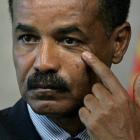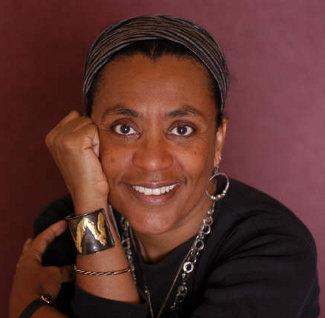Who’s backing Al Shabaab? – Al Qaeda, Eritrea? – By Maddy Fry

The Kenyan government’s decision to invade Somalia was preceded by an ambiguous encounter that received comparatively little coverage. In mid-October, a supposed member of Al-Qaeda, curiously claiming to be from the USA, was seen to be handing out food, clothing and copies of the Koran to famine refugees in the Ala-Yasir camp south-west of Mogadishu. Such an obvious “˜diplomatic’ gesture was certainly a rare one. Given that Al-Qaeda also operates on a somewhat fractured basis, one might also speculate as to whether the figure (who claimed to be in Somalia on behalf of Al Qaeda leader Ayman al-Zawahri) might have merely been inspired, rather than directed, by the organisations leadership. Links between individual fighters can’t strictly be said to always point to a major sense of organisational unity between the two at the highest levels.
Yet in many ways this was rather predictable – not just because since 2007 al-Shabaab have done little to hide their ideological sympathies with their brethren across the water, but also because it points to the increasing usage of smaller groups in the Horn by larger players both within and outside East Africa.
Al-Shabaab’s priorities may be inward-looking, concerned with wrenching full control away from the UN-backed government in Mogadishu, but those of their financiers frequently are not. The remnants of the beleaguered regime in the Somali capital trying to resist al-Shabaab claims the country contains many from abroad providing the latter with military aid, including the training in previous years of Somali fighters in Afghanistan.
On one level, Al-Qaeda has an obvious motive for forging links with ideological allies in the Horn. However, there has been little evidence that the Somalis’ aims go far beyond the country’s borders, compared to the former’s more global vision. The appearance of an Al Qaeda fighter may play into the al-Shabaab strategy of denying access to Western aid groups and instead promoting their cause via militant propaganda. But as an organisation formed with violent intentions stretching across East and West, Al Qaeda’s ideological priorities are unlikely to be rooted so deeply in the Horn, particularly with the inter-ethnic wrangling and clan rivalries that plague Somalia’s militants. So the links for the most part seem sporadic; but they point to an increasing trend for extremist networks in the Horn to draw on the support of those with larger vested interests outside it.
The Kenyan government’s high-profile invasion of Somalia on in mid-October was prefaced by accusations that a government minister had been funding Somali terrorists. Tourism minister Najib Balala was accused in a UN report released in August of lending money to al-Shabaab in 2009 supposedly for the purpose of mosque-building, along with accusations that in February this year he sent money to an account held by an individual known to be a financial backer of the group. He refused to accept the conclusions, pleading ignorance over the money’s use.
Other speculative reports to have emerged include claims that high-profile lawyer Amina Abdalla was also involved in channelling funds to Somalia, coupled with suspicions that young people recruited for the al-Shabaab cause have predominantly been drawn from non-Somali communities. Much of this remains contested, but it does mean the Kenyan government’s invasion of Somalia suggests a deep insecurity about how widespread and entrenched the country’s links with militants might be.
More attention has been focused on recent months on the suspected alliance between the Eritrean government and Somalia’s more militant contingent. Much of it is rooted in Eritrea’s drawn-out and bloody relationship with Ethiopia, whom it accuses of violently imposing its imperialist agenda on minorities within and outside its borders. As part of an ongoing proxy war against Zenawi’s regime, Eritrea has been mobilising the resources of other groups in East Africa, including those in Somalia and among minority groups within Ethiopia.
The recent allegation (vehemently denied by President Isaias) that al-Shabaab receieves funding from Asmara prompted calls for sanctions to be imposed on Eritrea. Although weakening Ethiopia seems to remain the aim, if true then it would seem this much smaller state is drawing on militants in the region to create a larger support network against Addis Ababa. The accusations remain speculative, but significant.
Yet the Somalis are not the only ones thought to have been enlisted. The Oromo Liberation Front (OLF) were thought to be heavily involved in a plot to bomb the African Union summit held in Addis Ababa earlier this year. The group are largely concerned with weakening the Ethiopian state and, in the process, furthering the interests of the minority Oromo-speaking peoples that currently reside within its borders. For the OLF to team up with Eritrea thus makes sense, as the two employ a common discourse in relation to Addis Ababa.
In 2010 Ethiopia also accused Eritrea of harbouring members of the Ethiopian People’s Patriotic Front, another subversive splinter group that the Ethiopian government labelled as “˜terrorist,’ including the group’s founder Col. Tadesse Muluneh. Accusations of this nature are often vehemently denied by the government in Asmara. Yet if true they support suspicions that Isaias Afewerki’s government continues to reach out to other militant factions on its doorstep.
All this shouldn’t detract from the fact that for many extremist groups in the Horn their concerns are comparatively narrow. But given the flagging popularity globally of both Al Qaeda and Eritrea to say the least, bolstering support in the region is an understandable move for any pariah – big or small.
Maddy Fry is a freelance journalist specialising on the Horn of Africa








[…] usage of smaller groups in the Horn by larger players both within and outside East Africa. Read more… Share this:ShareTwitterFacebookLike this:LikeBe the first to like this post. This entry was […]